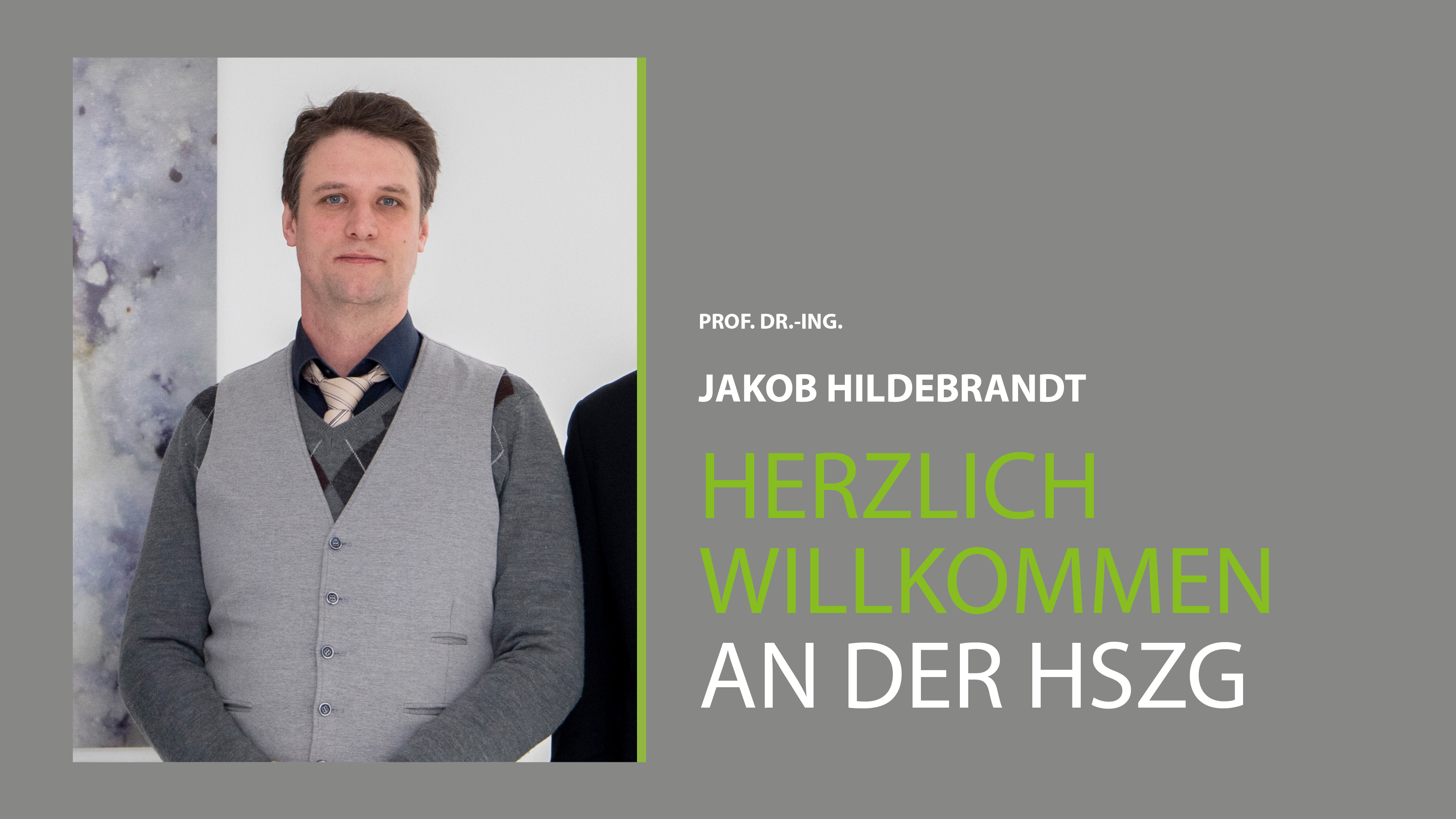New appointment: Dr.-Ing. Jakob Hildebrandt - brand new at our HSZG since February 2020 - teaches operational environmental protection and sustainability at the Zittau site.

How do the design of edible forest gardens, scuba diving, endurance running and applied mushroom science fit together? All these interests and talents come together in the person of our newly appointed professor Dr.-Ing. Jakob Hildebrandt, born in 1984 in Werther, Westphalia. He has been a professor in the Faculty of Environmental and Natural Sciences since February 2020. His area of expertise at our HSZG includes operational environmental protection and sustainability. "I became interested in ecological relationships in the landscape and technical environmental protection very early on," says Hildebrandt. During his A-levels, he studied environmental sciences, and the now 35-year-old completed his civilian service in landscape conservation. He studied for a Bachelor's degree in International Environmental Engineering at Bremen University of Applied Sciences. While his Bachelor's degree had a process engineering focus, his Master's degree in Energy and Material Flow Management at Trier University of Applied Sciences then focused more on management and industrial engineering.
After his Bachelor's degree, Hildebrandt was able to gain "down-to-earth practical experience", as he says, at the lower environmental protection authority of the city of Cologne. From 2011 to 2013, he worked as a technical employee in the city of millions in waste, water and immission control monitoring and was responsible for more than a hundred companies that work with volatile chlorinated hydrocarbon solvents, among other things. Jakob Hildebrandt then moved from this official position to the Helmholtz Center for Environmental Research in Leipzig in 2013. As a doctoral student and research assistant, he conducted research in the Bioenergy Department with a focus on the material use of biomass on the topic of "Sustainability index for the evaluation of value chains in the Central German Bioeconomy Cluster of Excellence".
Living with renewable energies and the bioeconomy means learning to live with and deal with system change and fluctuations. Structural change offers us a great opportunity to do more than just repeat this as a mantra. Rather, it provides us with the task and opportunity to establish a common innovation ethos together with society and the economy. This will help us to deal with fluctuations in a resilient manner, to create knowledge capital and added value even from supposed scarcities and to develop completely new opportunities for the future of Lausitz in renaturation ecology and the development of highly innovative business ecosystems of the bioeconomy and to place them on a stable footing.
From 2016 until last year, Hildebrandt worked as deputy operations manager and project coordinator in recycling and humus management. There, he was responsible for the planning and operation of biowaste fermentation and composting plants at the Gütersloh site in East Westphalia. Hildebrandt successfully completed his doctorate in engineering at the University of Leipzig in 2018 with a cumulative dissertation. As part of his doctoral thesis, he researched the evaluation of the sustainability of the material use of beech wood. Hildebrandt's great interest, both professionally and privately, is the recycling of organic substrates. More specifically, how an intelligent cascade use of biogenic waste and residual materials can be implemented at the entire system level, from gardens to the chemical industry. Examples of this are the recycling of materials for energy generation, e.g. as biogas, or for soil improvement, e.g. as compost substrates.
This is also an interface with his training as a specialist consultant for applied mycology, which he has been doing since 2014 and which also focuses on the bioconversion of substrates. Privately, he is experimenting with the design of forest gardens, known as food forest design - this offers a wide range of future potential, e.g. the use of starchy fruits as food and animal feed, which can help with the greening of cities and contribute to making inner-city landscapes "edible". "I'm also interested in the mycological relationships in the forest," says Hildebrandt. "How can fungi heal and help and what are the effects of harmful fungi? For example, in climate change?" Perhaps Mr. Hildebrandt will soon be working with a few students to develop project ideas for designing edible forest gardens, for example for a private food forest in Zittau. A warm welcome to the HSZG.
Teaching in the areas of
Research in the areas of
2019
2018